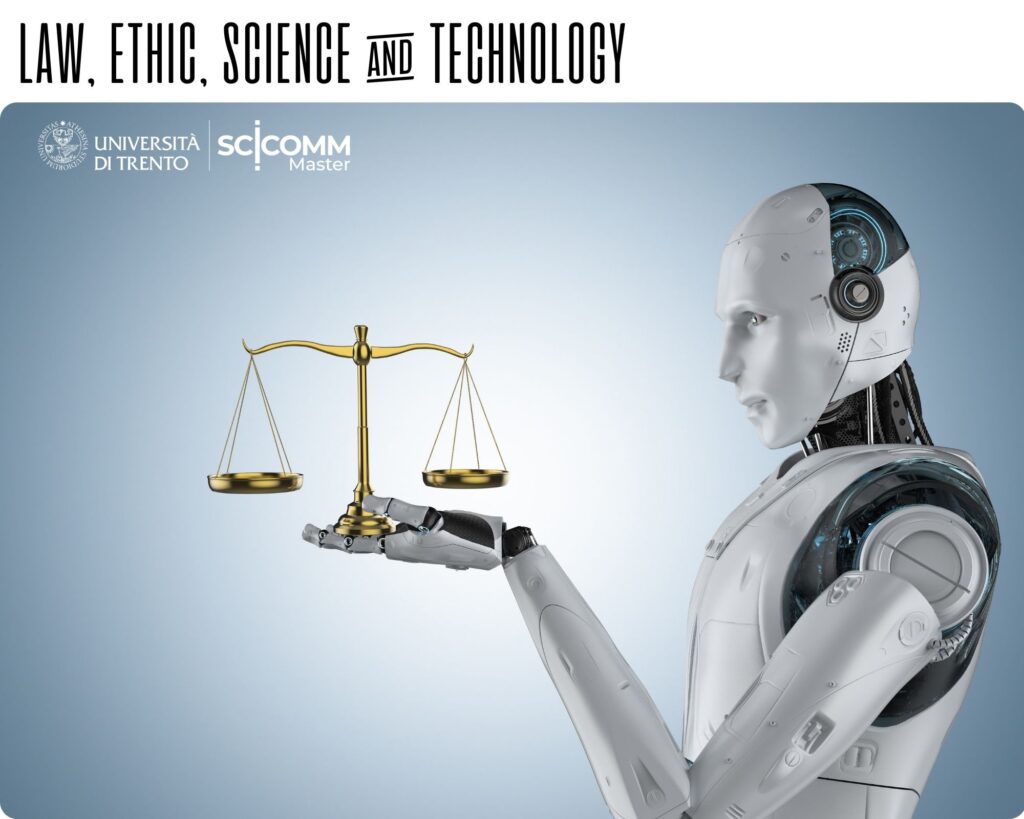
Course Features
| Language | English |
|---|---|
| Hours | 12 |
| Assessments | No |
OVERVIEW
Life sciences create never-ending changes and innovations. These developments generate many consequences, which bioethics and the law have to face in order to avoid cons and favour pros.
In order to effectively communicate the law of life sciences (LLL), it is critical to understand both its object (as challenging as it is) and the changing that law itself has to join.
The course aims at studying the main principles of LLL, focusing, at the same time, on the required legal mutations.
Module 1
Carlo Casonato: Artificial intelligence: law and ethics
Module 2
Lucia Busatta: The challenges of technological innovation in medicine: how do healthcare systems change?
Module 3
Marta Tomasi: Science, pseudoscience, and the law: vaccinations and not validated innovative therapies
INSTRUCTORS
Carlo Casonato received a PhD in “Fundamental Liberties in Comparative Law” (1996) from the University of Trento and is now a full professor of Comparative Constitutional Law.
In 2003 he was a visiting professor at the Chicago-Kent College of Law (IIT) where he taught a course on Law and Bioethics.
He conducted research at a number of universities, including Oxford (2012), Harvard (2009), Berkeley (2006), the University of Toronto (2000), the University of Lancaster (1999), the Centre de recherche en Droit public of the Université de Montréal (1995) and the University of the Basque Country in San Sebastian (1993).
He is the director of the Biolaw Project and of a nationally-funded project on “The impact of Biotechnological Innovations on Fundamental Rights: An Interdisciplinary and Comparative Survey” (FIRB). He has also served as President of the Bioethical Committee of the Trento Province and is now vice-President of the University of Trento IRB on human experimentation.
Lucia Busatta (PhD in Comparative and European Legal Studies, University of Trento, 2012) is Assistant Professor of Constitutional Law at the
Department of Cellular, Computational and Integrative Biology – CIBIO of the University of Trento.
She has been involved in research activities of BioLaw Project since 2009. She is involved in the management of the website of the project and since 2014 she is one of the Associate Editors of BioLaw Journal – Rivista di Biodiritto.
Her research interests include biolaw and bioethics (spacing from reproductive rights to end of life issues), healthcare rights, law and equality (especially social rights, migration law, disabilities studies and women rights). More recently, she is also developing new interests, in particular in the area of research integrity and freedom of scientific research.
Lucia is author of several papers published in national and international scientific journals.
Marta Tomasi (PhD in Comparative and European Legal Studies) is Assistant Professor of Comparative Public Law at the Faculty of Law of the University of Trento.
There, she is part of the Biolaw Research Project being involved in the management of the project website (www.biodiritto.org) and in the editorial activities of BioLaw Journal – Rivista di BioDiritto, for which she is one of the Associate Editors.
Her main fields of interest are comparative constitutional law, biolaw and bioethics, the protection of fundamental rights in biomedicine, children’s rights, immigration law.
Marta is the author of several papers published in national and international scientific journals.
